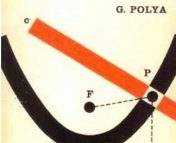Getting into graduate school is tough. There is no denying this. Thankfully there are many resources (including here, here, and here), to help you put together a competitive application. But I want to dedicate this bite to something that is rarely discussed, and yet occurs all too often. What happens if you aren’t accepted to any PhD programs?
As someone who was unsuccessful in applying my first (and second) time to PhD programs, I know how much this can suck. You might feel like a failure, or that you aren’t good enough for graduate school. While this is a perfectly natural response, I want to assure you that not being accepted into a program has ZERO to do with you being a capable and talented scientist and a wonderful human being.
To prepare for this post, I sent out several emails asking for experiences from anyone who took a “non-traditional” route in not attending a PhD program immediately (or never) after completing an undergraduate degree. For the longest time, I believed I was one of the few to take this route, but instead I was greeted by a community of people wanting to share their stories and offer advice.
The fact is that it is statistically difficult to be accepted to a PhD program. Many of the larger schools receive 200+ applications for only a handful of spots (though acceptance rates can vary based on the school and department in question). The University of Colorado in Boulder (my program) received nearly 300 applications for about 30 spots. And the nature of this is that the majority of applicants were well-qualified for those spots. While these statistics can be intimidating, remember, you have a higher chance of being accepted to a PhD program if you apply than if you don’t apply!
But What If I Don’t Get In or If I Decide Not to Apply?
Everyone I interviewed stressed the importance of self-reflection and that by taking additional time provided them with a chance to think about their future goals. This bite featuring this paper by Lucianne Walkowicz provides a wonderful starting point for this. Meredith Rawls, a former Astrobiter and current postdoc at the University of Washington, sums this up well: “I think going through a self-reflection process of ‘do I really need a PhD to accomplish my value-driven goals?’ is hard and worthwhile, and that different folks will slam into this wall at different times depending on how their school/career path proceeds.” Angi Harke-Hosemann, a CU graduate student, also echoed this sentiment, “sit back and re-evaluate what you want and decide if graduate school is worth it.”
While what you choose to do depends on your own personal goals, below is a list of potential paths that may be available students wondering “what is next?” Most of these options are fairly short term solutions. More possibilities including some long-term options can be found in this post.
- If you have been waitlisted, it is OK to email that school and ask for your status. Some schools can be fairly silent once you are waitlisted, leaving you feeling like you are in limbo. Reach out to your waitlist program and get an idea of the chances you will be accepted. Justin Holmes, a CU graduate student, suggested that you can even let the waitlisted program know you are still interested and would accept their offer. However, Meredith Rawls recommends caution and to treat a waitlist as an unofficial rejection and begin forming other plans. If you are eventually accepted after being waitlisted, do not feel pressure to attend simply because it is your only offer. Angi Harke-Hosemann ended up turning down her one acceptance after being waitlisted until the deadline, “I wanted to choose a school because of that school, not because I was forced to choose it.”
- Brittany Kamai an experimental astrophysicist at Caltech, suggests “reaching out to a few senior colleagues at your local institution and the places you applied to and hear their feedback on what you can improve next time around.” This feedback can help you figure out your application’s strengths, shortcomings, and what you can work on or improve upon before reapplying.
- If you are currently doing research, ask your adviser if it would be possible to stay on (and be paid) for another year. Angi Harke-Hosemann continued working for her undergraduate adviser for another year. She found that her adviser not only provided her with this opportunity but also the support and encouragement necessary to overcome the frustration of multiple rejections. Angi emphasized that adding more research and experience will both help boost your confidence level, and better your application if you decide to re-apply.
- Applying to a Bridge Program is a pathway to take if you need to gain experience on necessary coursework or research experience (especially if your undergraduate institution does not offer this). From this work, you may earn a Masters and/or publish research articles, which makes your application more competitive should you decide to apply to a PhD program. However, these programs do not provide you with a guarantee acceptance into a program. While some of them are affiliated with a separate PhD program, you may still need to apply and be accepted into that program. Brittany Kamai also emphasizes that “all the bride programs are extremely different.” So make sure you do some research on each individual program before you decide to apply. If you are interested, you can find a list of some Bridge programs here.
- You can also apply to a Masters program (in physics, astrophysics, or another relevant science area). Here is a list of schools that are a Masters only program. Nicole Arulanantham, another CU graduate student, attended Wesleyan for a masters in astronomy. She found that “completing a masters program first was a really great opportunity to build my confidence as a researcher.” She also noted that “I’ve been much more focused in a PhD program than I would have been if I started it right after undergrad.” However, similar to some bridge programs, you will need to reapply if you choose to attend a PhD program.
- Check the AAS job register, local observatories, and science centers for possible job openings. Places such as the CfA, STScI, and LSST sometimes have openings for students that completed their undergraduate degree. Daniel Berke, another Astrobiter, worked as a data quality assistant at the James Clerk Maxwell Telescope on Mauna Kea for three years before re-applying to graduate school. Meredith Rawls applied for a telescope operator position as well as an instructor at a STEM-themed sleep away camp.
- There are also jobs in the industry sector (outside of academia or research) that may be appealing. Private aerospace companies may offer opportunities that only require a Bachelors degree. Sam LaPorte, a Penn State graduate with a B.S. in astrophysics, now works as the Science Planner for day-to-day operations for the Swift telescope after not being accepted to a PhD program. Sam LaPorte reports that he found that students with a B.S. in astronomy are very hireable in non-academic jobs.
- Applying internationally is also a possibility. Some international programs have later deadlines than in the U. S. and can provide a unique opportunity to study abroad. Daniel Berke, after being rejected from his school of choice in the U.S. successfully applied to Swinburne in Australia several years later. He notes that “PhD programs in different countries can also be different [in structure and length] from those in the U.S.”
- “Scouting expeditions,” as Brittany Kamai calls it, is another option. If there is a topic you are particularly interested in, make a list of people you might be interested in working for (faculty in your department or other schools, research associates, national labs, etc). Send an email to each one stating your interest, background qualifications, and ask if they have any positions available in their group. Joey Rodriguez, a postdoc at Harvard, discovered the Fisk-Vanderbilt bridge program when doing this. “I took this route and was lucky enough to receive a ‘yes’ after about 15 nos.” He also stresses that while this option is intimidating, “most people [who] said no would take the time to reply (very politely) and sometimes suggest additional people to contact or [give other] ideas.”
Advice and Moving Forward:
No one I spoke with regrets taking a different route than immediately attending graduate school after undergrad. Joey Rodriguez, who had to leave his graduate school after his funding was cut in his second year, stated that this was both “the worst day of my life, but also the best thing that happened to me.” Nicole Arulanantham said that following a different route gave her the tenacity not to quit when faced with the challenges of a PhD program. And Sam LaPorte stresses not to “treat it [not being accepted] as the end of the world. It is very easy to believe that there’s one path that you have to take, and if you don’t get into grad school straight out of college then everything is going to fall apart and you’ll never be the person you want to be or live the life you want to live.” But in the end, Sam found that this is definitely not the case.
As to the notion that somehow not taking the traditional route in academia will hinder your future prospects, Brittany Kamai disputes this, “it is through people taking new routes that it strengthens their contributions back in the program and the field. I firmly stand by the advice that you should take some time off to truly assess what is important in your life.” And Meredith Rawls also stresses, “I think the notion that getting a PhD is the “only” or even “default” way to be a professional astronomer is a bad one, almost as bad as the idea that the “correct” career path is to get a tenure-track faculty position.”
So as you begin putting together your graduate school applications, remember, you are so much more than an application packet. Whatever the outcome, and whatever you end up doing, do not mistake not getting into graduate school as the equivalent of “I can never be a scientist.” There are science careers out there right now. Take this time to really analyze what you want to do. And remember, science isn’t linear; often our career paths aren’t either.
Acknowledgements:
I would like to thank everyone who contributed to this post, especially Daniel Berke, Meredith Rawls, Elisabeth Matthews, Justin Holmes, Nicole Arulanantham, Joey Rodriguez, Brittany Kamai, Angi Harke-Hosemann, and Zach Berta-Thompson. If you have experienced something similar and would like to tell your story or offer your own advice in regard to this, I encourage you to do so in the comment section of this post or on Twitter.





It was years ago now (1973). The country was entering a serious recession, the Apollo program had ended laying off thousands of aero and astro positions. Frankly, science positions were tanking! The interesting aspect in relation to Jessica’s article was I had been accepted and was starting my astrophysics graduate program! My intention was to pursue a PhD in astrophysics in a “niche” area of planetary systems around binary stars. I attended the 1973 Symposium for Astrophysics in New York (even got to attend a session with Stephen Hawking!). But, in birds of a feather sessions, the picture was dismal. Folks from all over were noting no postdocs, no job prospects, nothing. This was very sobering. As Jessica notes, lots of self reflection came down. (On top of this, my peers graduating with their PhD were taking jobs selling shoes or maybe teaching math in a local tech college.) I made the decision to stop with my Master’s degree…The first “dropout”at my university. Nobody did this! I became a black sheep and my advisor started to ignore me. Thank goodness for my wonderful second reader on my Master’s thesis. After graduation, I was able to get a job in computer networking after sending hundreds of letters and resumes and making many phone calls in physics. I was definitely despondent but I had a job so I could eat and have a place to live. Most of my career was in IT networking and project management. However, I had a glorious time working at the MIT Lincoln Laboratory in the early 80’s. (Go TESS!) After a wonderful “technical” career, marriage to my dream girl for 48 years, and the best daughter in the universe, it was a good journey. Yes, Jessica, there are many routes for our life’s journey. (Now retired, I’m a staff astronomer at the Daniel Observatory in SC hosting the former Princeton Great Refractor and having a blast.) Hope this somehow helps.